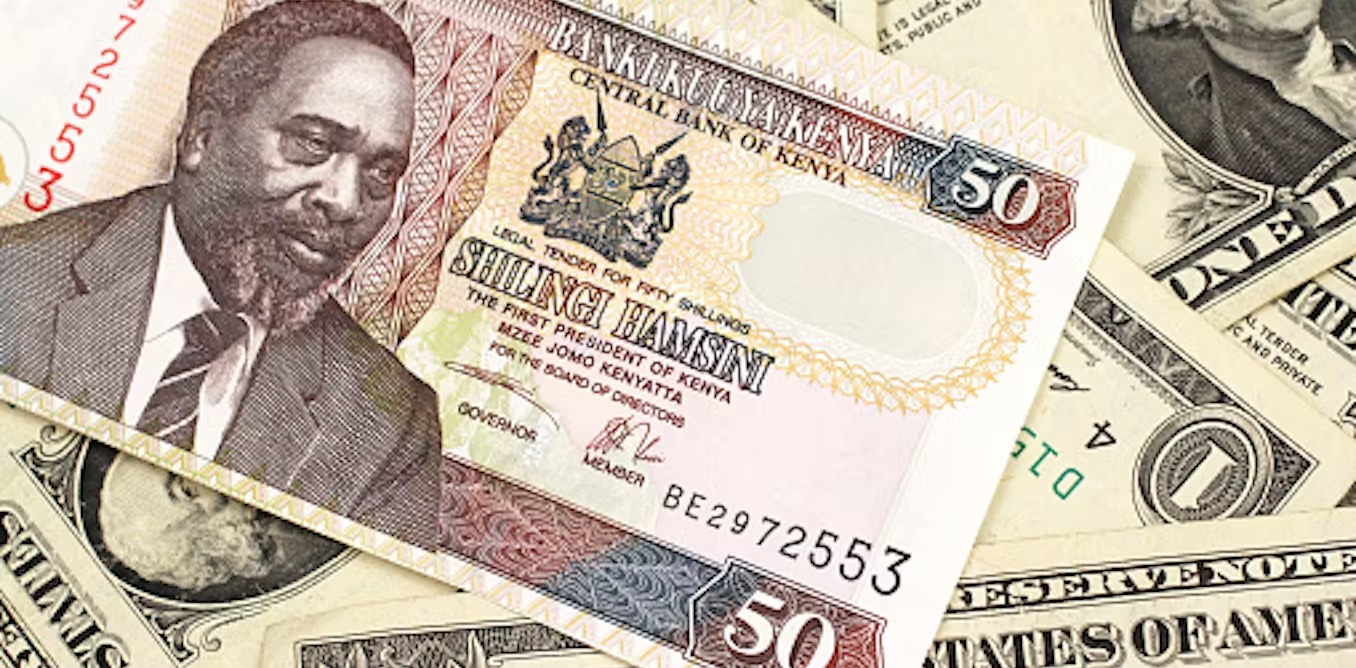Data from Kenya’s central bank show that public debt (total money owed) declined between December 2023 and June 2024.
The drop in external debt – by 15.4 % – over this period does not mean that the country’s overall finances have improved. Rather, it is due to the gains in the value of the Kenyan shilling, thanks to pervasive state interventions since February 2024.
So high is Kenya’s public debt that servicing it ate up 69.6% of domestic revenues as of June 2024. This is more than double the recommended limit of 30%, making the country’s public debt unsustainable. This has been the case since at least 2019.
As a finance scholar with research interests that include development finance and economic growth in Africa, I think the high ratio of debt service to revenue leaves Kenya with few options and diminishing time to steer out of trouble.
In this article, I explore possible effects of unsustainable public debt and some ways through which Kenya could mitigate a sovereign debt default.
As late as January 2024, the International Monetary Fund (IMF) assessed Kenya’s debt as sustainable, even as it warned that “overall and external ratings for risk of debt distress remained high”. With its insistence, the government proposed a raft of tax measures, through the 2024 Finance Bill, aimed at raising additional revenues.
This ignited nationwide protests that forced the government to withdraw the bill. Consequently, the country’s tax revenue is expected to suffer a shortfall of about KES 346 billion (US$2.7 billion) during the 2024/25 fiscal year.
This constricts the government’s ability to repay debt. Despite its falling ability to pay, the government continues to pile up debt. Indeed, as recently as September 2024, senior government officials were in China negotiating additional loans.
Unless it secures a debt write-off, debt rescheduling, or similar deal to reduce the debt burden, Kenya will almost certainly end in debt default. The country must use every effort to avoid this possibility.
Avoiding debt default
When creditors believe that a country is likely to default, they seek to protect themselves from possible losses. Sometimes they force the government to take austerity measures.
Austerity means reducing public spending on most needs, including education and health, physical infrastructure such as roads, and social programmes such as food subsidies. It may also force a country to raise revenues by increasing taxes or selling state-owned enterprises.
Such measures can have a negative impact on development and on citizens’ quality of life. But countries on the brink of debt default often have no other option.
Countries at a high risk of default and those that have defaulted usually have their sovereign credit ratings downgraded by rating agencies. Kenya’s sovereign debt rating for example was downgraded in August 2024 notwithstanding that the IMF had earlier assessed it as “sustainable”. Sovereign credit ratings represent the confidence that creditors have about a country’s ability to pay its debt.
Rating downgrades lead creditors to demand higher interest rates on loans. Higher interest rates make it expensive for businesses and individuals to borrow. As a result, businesses may collapse, worsening unemployment, and individuals may lose their livelihoods.
As economic conditions deteriorate, investors may sell their assets and take their money elsewhere (capital flight). This triggers a drastic fall in asset prices, which may cause some markets, such the stock exchange, to collapse.
People who have money in banks may withdraw large amounts on short notice (bank run).
For banks to make the money available to savers in such unanticipated large amounts, they must sell some of their assets, such as treasury bills. However, because of falling prices, the assets may have to be sold at a loss and some banks may collapse.
If the failing banks make up a big part of the banking sector, the country’s financial system may fail altogether (financial crisis).
Kenya’s options
Kenya’s government has several options to avoid public debt default.
1. Dealing with wasteful spending: There is clear evidence of wasteful public spending. Weeding it out would reduce debt service needs and the risk of default. To start with, the 2024 Appropriation Bill could be amended to target recurrent spending on things like transport and entertainment, and allocations to spouses of senior government officials.
2. Fiscal policy rules: There is evidence that limiting the amount a country can borrow and its budget deficit may lower the risk of sovereign default. The rules limit what bureaucrats can spend. Kenya has on many occasions breached such rules or simply changed them.
3. Institutional reform and whistleblowing: Strong institutions play an important role in imposing fiscal discipline. Kenya has an elaborate institutional and policy framework. But its institutions are largely considered toothless and in need of reform.
For example, the auditor general could hold state officers criminally liable for neglecting their accounting responsibilities. And more legal protection and security would encourage whistleblowing.
4. Boosting tax revenue: Given the resistance to the IMF-backed taxation strategy, Kenya has to be more inventive. The government could collect revenue more efficiently, for example, through digitalisation and adoption of artificial intelligence.
5. Off-balance sheet financing: The government can begin to finance more of its development needs through private-public partnerships. But this is a medium term measure; there are still capacity constraints.
Kenya’s creditors can help, too
Kenya could also consider approaching creditors to negotiate pre-emptive debt restructuring. The borrower can do this when a default is imminent but before it occurs. Debt restructuring eases pressure on government finances by reducing periodic repayments.
Another approach is debt reprofiling. This typically involves consolidating several obligations into one obligation with a longer repayment period, or changing the debt to a different currency. The government appeared to make a reprofiling pitch to China as recently as September 2024.
What next
Excessive use of sovereign debt has caused serious economic problems in countries such as Argentina and Greece. There are many lessons from such countries that would help Kenya’s government to steer the economy in the right direction and avoid a debt crisis.



 UBS Boosts Chinese Tech and AI Stocks for 2026 as Sector Eyes Strong Growth
UBS Boosts Chinese Tech and AI Stocks for 2026 as Sector Eyes Strong Growth  PBOC Scraps FX Risk Reserves to Curb Rapid Yuan Appreciation
PBOC Scraps FX Risk Reserves to Curb Rapid Yuan Appreciation  Yen Near Two-Week Low as Policy Concerns Weigh; Yuan Strength Pressures U.S. Dollar
Yen Near Two-Week Low as Policy Concerns Weigh; Yuan Strength Pressures U.S. Dollar  U.S. Imposes Steep Countervailing Duties on Solar Imports from India, Indonesia and Laos
U.S. Imposes Steep Countervailing Duties on Solar Imports from India, Indonesia and Laos  U.S. Stock Futures Fall as Nvidia Drops Despite Strong Earnings; Netflix Jumps 9%
U.S. Stock Futures Fall as Nvidia Drops Despite Strong Earnings; Netflix Jumps 9%  BOJ Signals Possible April Rate Hike as Ueda Eyes Inflation and Wage Growth Data
BOJ Signals Possible April Rate Hike as Ueda Eyes Inflation and Wage Growth Data  Tokyo Core Inflation Slows Below 2%, Complicating BOJ Rate Hike Outlook
Tokyo Core Inflation Slows Below 2%, Complicating BOJ Rate Hike Outlook  U.S. Stock Futures Hold Steady Ahead of Nvidia Earnings and Trump’s State of the Union
U.S. Stock Futures Hold Steady Ahead of Nvidia Earnings and Trump’s State of the Union 
































